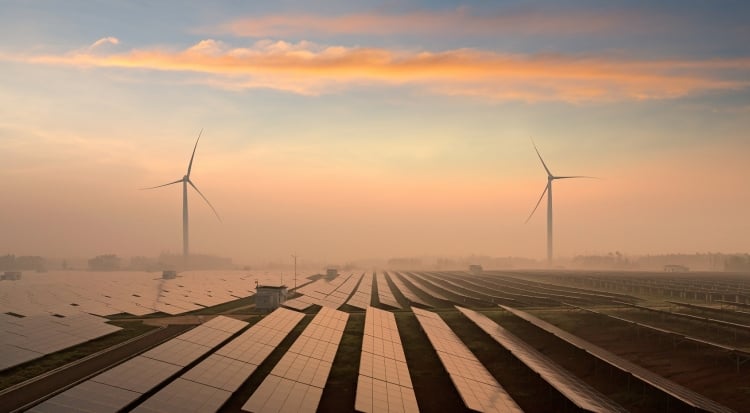
Masdar acquires Arlington Energy to expand BESS capabilities in the UK and Europe. Image: Getty.
Renewable energy giant Masdar has acquired UK-based battery energy storage system (BESS) developer Arlington Energy in a bid to expand its presence in the UK and European renewable energy markets.
Arlington Energy is based in London and primarily develops, builds, operates and finances flexible energy solutions. The company has stated it has taken over 170MW of assets through to operation in the last two years.
In 2018, the company announced plans to build out a 1GW portfolio of energy storage and gas peaker projects across the UK after securing initial funding of £200 million from an offshore fund of institutional investment.
Having now been acquired by Masdar, a UAE-stated owned renewable energy company, it is expected that Arlington will continue its expansion into the UK market and develop a stronger portfolio of renewable energy projects. This will enable the development, construction, operational management and financing of BESS projects under one Masdar-Arlington platform.
Masdar describes itself as “one of the fastest-growing renewable energy companies in the world” and is aiming to reach 100GW total capacity by 2030. This is then expected to be doubled in the following years.
“Masdar and Arlington Energy share a long-standing belief that greater investment in energy storage is critical if countries are to expand their renewable energy portfolios and achieve their net-zero ambitions,” said Mohamed Jameel Al Ramahi, CEO of Masdar.
“By working together, we will be able to provide a more resilient and flexible energy resource, helping to accelerate the UK and other European countries’ clean energy transitions, and supporting our efforts in expanding our offshore wind and broader renewables portfolio.”
The acquisition comes at a time when investors are becoming increasingly interested in battery storage as projects become more profitable and cost-effective, according to industry experts.
Increasing battery storage capacity is a vitally important aspect of the energy transition. With the UK focusing predominantly on intermittent solar and wind energy as part of its transition, having sufficient energy storage will be needed to cater for the growing capacity.
To keep the rapid rollout of battery energy storage projects, stacking value and optimisation have been regarded as crucial components in maintaining attractive investment opportunities, according to a GridBeyond and Thrive Renewables white paper.
An increase in battery supplier investment, however, could overcrowd the market, leading to less interest. Because of this, optimisation and stacking value must be utilised to maintain investor attraction, the paper said.
“Partnering with Masdar allows us to accelerate our BESS rollout in the UK and will make us the leading platform for energy storage,” said Matthew Clare, co-founder and director of Arlington Energy.
“With Arlington’s experience and expertise in the procurement, construction and operational management of BESS, and Masdar’s global capabilities in renewable energy, combining forces is a natural progression.
“This partnership creates a business with huge potential, immediately capable of delivering at scale domestically, and in other markets in the future, as more nations join the UAE and UK in setting net-zero targets.”
In late 2021, Norwegian oil and gas giant Equinor acquired a 45% stake in UK utility-scale storage and stability services developer Noriker Power.
The companies identified an opportunity to create profitable businesses by deploying battery and storage assets to meet the growing stabilisation needs in the power sector, Equinor stated. Additionally, deploying batteries in proximity to its current portfolio of offshore wind assets in the UK could enhance returns.
This partnership has now come to fruition with Equinor having approved the final investment decision of its first battery energy storage asset in the UK earlier this month, which will be developed alongside Noriker.

